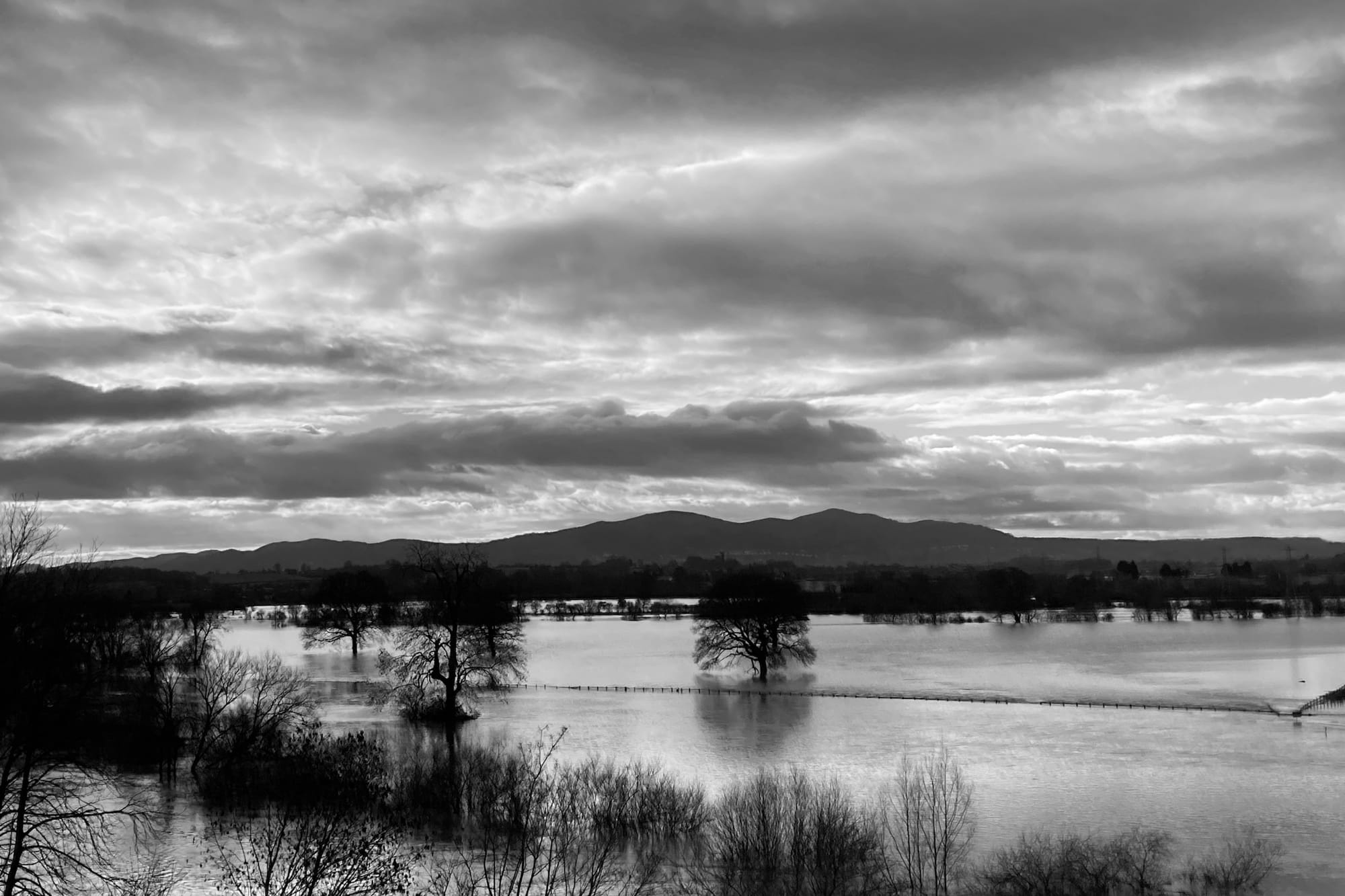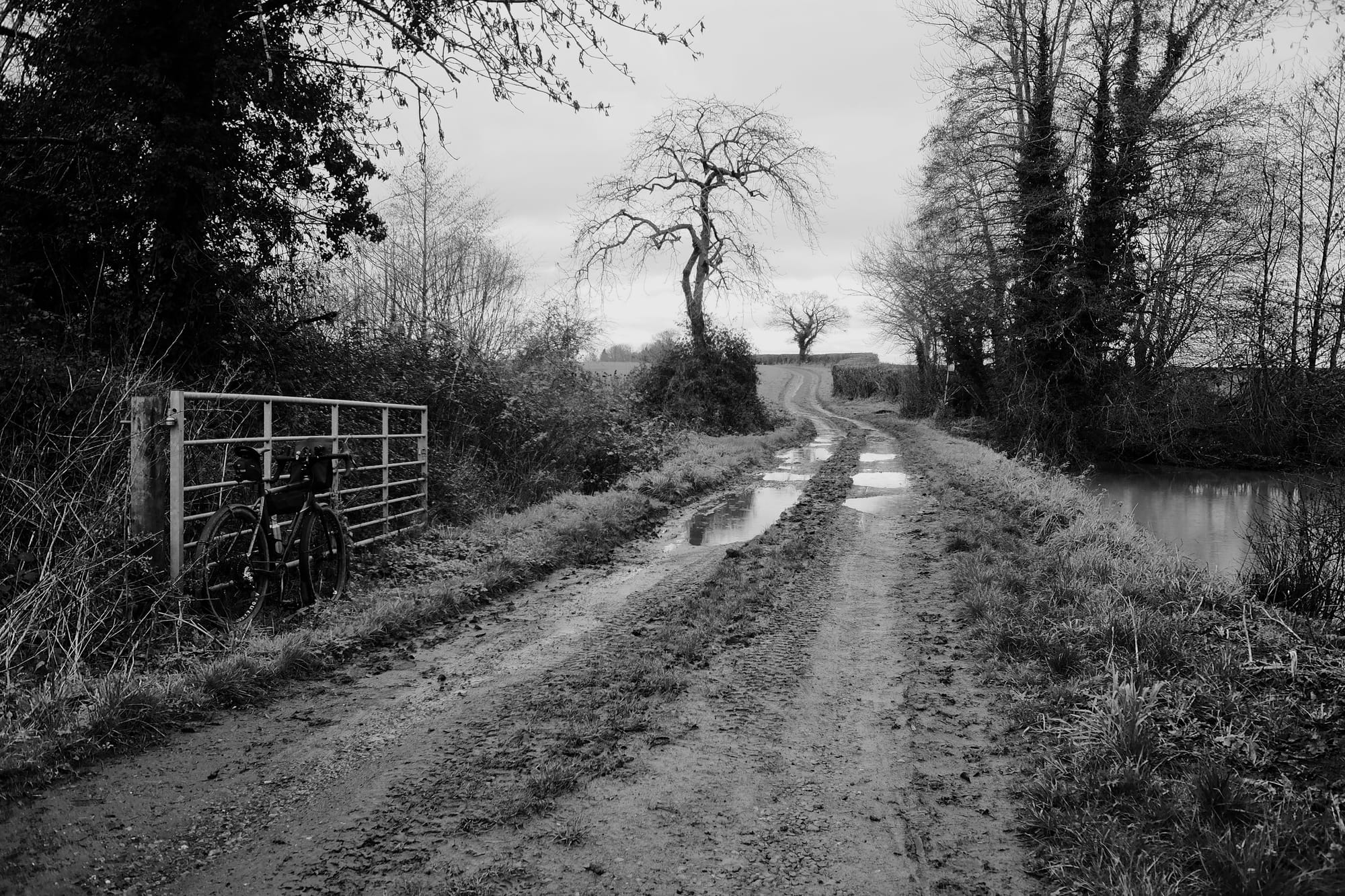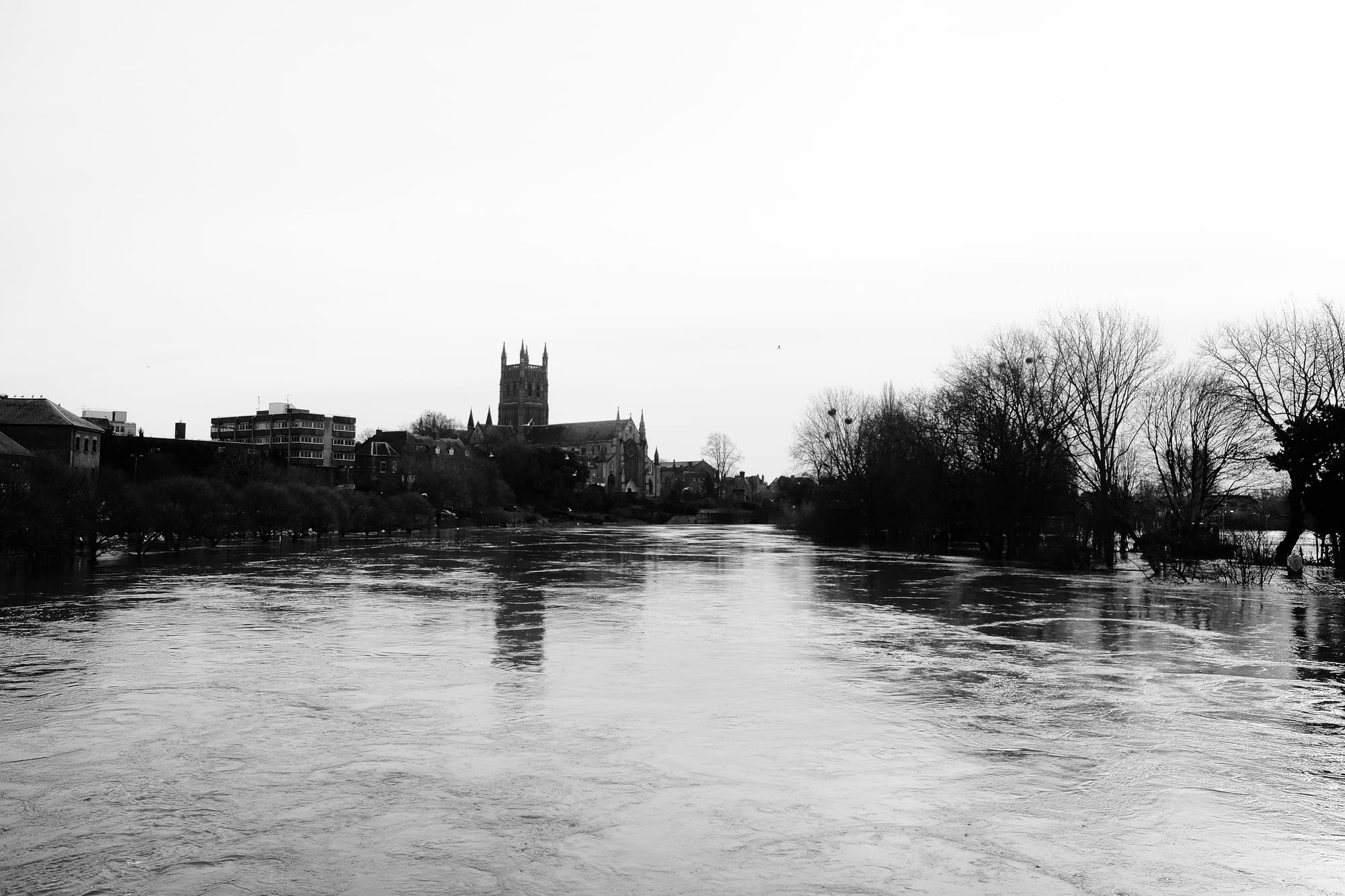Riding through a drowned world

As the flood waters peaked again, I set off to ride through a landscape turned largely to liquid – everything seemed to be covered in either water or mud. The monsoon months between July and December had been the wettest on record for the UK as Storms Babet, Ciarán, Debi, Elin, Fergus and Gerrit battered the country, followed by Henk in the new year.
The effects of the latest storm on my favourite trails were predictably messy and I splattered along a sloppy farm track pondering what the future might hold. There's no denying (except, perhaps, by the most delusional) that climate change is leading to heavier rainfall. And thanks to our society’s love of draining wetlands and building on flood plains, when the engorged clouds burst, the run-off has nowhere to go. Water spills into streets, wrecks homes, wipes out crops and ruins bike rides.

With my favourite routes awash, it had been a barren winter for bike riding. But the flooding had piqued my interest and I’d decided to head out and see it for myself – a disaster tourist in my own backyard. And so I found myself sloshing along the tracks and back lanes, remembering why I dislike wet winter cycling.
I headed towards the centre of Worcester, through which the River Severn cuts. Hemmed in by development for much of its course through the city, the river was taking its chance to spill onto the flood plain at the racecourse and swamp the county cricket ground.
I stopped on the city’s road bridge, still just about accessible, to take in the view of the swollen river. The volume and velocity of the water was overwhelming. Was this a message from its goddess, Sabrina? If so, it seems people are finally starting to listen.
The prospect of a future where Sabrina regularly claims large areas of the city for herself has led the cricket club, famed for the cathedral backdrop to its ground, to seriously consider relocating from this historic home to somewhere drier.

No doubt this has caused some spluttering from members, and maybe an indignant letter or two to The Times. But the club – unlike so many politicians, local and national – is simply facing up to reality. And that reality is wet.
Standing there contemplating all that water, I recalled J G Ballard's The Drowned World, which I last read in lockdown – alongside On the Beach by Nevil Shute – when I thought that some post-apocalyptic literature might capture the depressing vibe. It did, and thinking back to that as I stood on the bridge wasn't much cheerier.
Published in 1962, The Drowned World depicts a future in which rising sea levels (albeit caused by solar radiation, rather than greenhouse gases) have rendered London an uninhabitable lagoon. From where I stood, it seemed quite possible that this could one day be Worcester’s fate too.
It was a chilling thought, and one that suddenly made the bridge feel more like a sinking ship than a secure vantage point. So I turned my bike around and pedalled homewards, grateful for once to be riding uphill – away from the floods.

